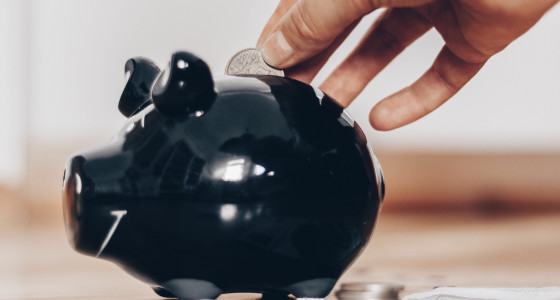
This article was last updated on 20/07/2023
We all want to get on top of our finances and the older we get, the better we tend to be at understanding our money. By the time you hit your 30s, you should have reached financial independence. This means you’re in charge of your own money. You’re not getting bailed out by parents any more, and you’ve got better awareness and knowledge of exactly what your personal finances are like – and what you want them to look like.
So exactly how should your finances look by the time you reach your late 30s? Here’s what you should be aiming for.
Consider the cost of having kids
Data published in 2019 by the ONS (Office for National Statistics) shows the average age of first-time mothers is around 28.9. But growing a family is early to mid-30s territory, with the age of all mums (not just first-timers) typically 30.6 and dads 33.6. It’s a completely personal journey, but your late 20s and early 30s are a good time to start putting down financial groundwork, if you’re ready to have a baby.
We’ve put together a couple of guides to starting and growing your family, whilst making smart financial choices. Take a look at How to financially plan for a baby to get you on the right path, plus 9 free things to do in the summer holidays for lots of fun things to do without dipping into your long-term savings pot.
Prioritise saving for a deposit
It’s around this time that dreams of buying your own home start becoming more concrete, especially if you’ve been chipping away at the deposit already.
But when you look at the amount needed to put down a deposit, it can be tempting to push that plan to one side, focusing on a shorter-term goal like a new car, or serious holiday. The key is to make the deposit your financial focus, and not be dispirited by how much there is to save.
Investigate the savings options which are going to help you grow your money fastest, and whether any government help might bring you closer to your dream house, flat, or somewhere in-between.
For example, could a Lifetime ISA boost your savings? Open to savers aged 18-39, it lets you tuck away up to £4,000 a year for your first home (or retirement), and adds extra cash (up to £1,000) a year too.
Cook your own meals
Sound obvious? The problem is, in your 30s, you’re busier than ever before. Whether it’s work, family life, travelling, all three or something else, it’s easy to get to the end of the day and go for a meal-deal, or opt for your favourite delivery service.
A 2019 KPMG survey found that on average, we’re spending £451 each, every year on takeaway meals, as an average (London was much higher, at a whopping £709 average personal spend). All of this accounts for around 34 meals a year, which works out at just under three splurges every week. So even dropping the habit down to once every two weeks could cut this outgoing by a significant chunk, if you feel up to it.
With thousands of meals-on-a-budget resources available – from websites and apps to Instagram accounts and YouTube videos – prepping your own food and freezing or reusing any leftovers can be varied, much more nutritious and dare-we-say-it, fun. Or at least very satisfying, when you know you’ve got a freezer full of chilli to use up this Friday night.
Our go-to favourites are the BBC Food website, Jamie Oliver’s YouTube channel and anything involving Jack Monroe, who famously created a budget-friendly food movement after struggling to feed herself and her son on £10 a week. It’s inspirational, tasty stuff.
Pay off your credit cards and student loans
Starting with high-interest debt, you should have paid off most of your credit cards and any student loans by your late 30s.
Paying off your debt helps to improve your credit score for big purchases like a home or a wedding. Plus, it helps you to regain control of your money so you can focus on other things.
If debt is something you struggle with, there are plenty of online resources available to help you put together a plan. No matter how old you are, it’s always possible to be debt-free.
And avoid unnecessary debt
But everyone has a bit of debt, don’t they? Or rather, ‘What is ‘unnecessary debt?’ Having a long list of non-essential, badly-used credit cards is a big one, as are unpaid (and penalty-accruing) bills, or parking tickets you’ve lost track of (make use of the pay-early-pay-less opportunity on these, which can run into thousands of pounds, and even a county court judgement).
Debt you just don’t need can also include loans, especially if you’ve gone for one but haven’t looked into alternative financing arrangements first. Go through your finances, all of your statements, supplier paperwork and unopened post, and set yourself goals for paying off and cancelling the debt you don’t need.
Overpay the mortgage (if you can)
If good savings rates and interest savings are realistic, but repayment penalties are also on the cards, does it make sense to overpay your mortgage?
There’s the potential to chip away at your home-buying debt, so you’ll pay it off quicker, in theory. But many lenders do include early repayment fees in their terms, especially if pay off above a certain amount (usually 10%). So check your terms, speak to your lender and add this good habit to your toolbox, whilst being sensible about fees.
Contribute to your pension
You probably already know that saving regularly is a healthy habit. But did you know that your retirement savings should amount to roughly twice your annual salary by the time you reach 35?
Whether it’s your 20s or 30s, it’s never too early to start thinking about retirement. Start saving while you’re younger, and you’re more likely to have enough in your pension pot to retire comfortably.
Savings not adding up to twice your salary? Don’t panic. There’s still time to catch up. Consider making larger pension contributions each month, or top up more often between your monthly contributions.
If you’re not sure exactly where all your pensions are (you may have a couple from previous jobs), sign up with PensionBee to get things sorted out today. One of our BeeKeepers will help you combine everything into an easy-to-use dashboard, making staying on track simple.
Set up an emergency fund
Alongside saving for your retirement, you should also be saving into an emergency fund. Disasters and unexpected bills happen to everyone, as we’ve seen recently during the coronavirus outbreak. Emergency funds help you to prepare for those moments.
It’s a lot easier than you think to set up an emergency fund, and even saving a little each month can go a long way towards an emergency.
Remember, part of being financially independent means keeping on top of saving, with multiple funds for different purposes. Having separate funds for retirement, emergencies and other goals means you’re less likely to use each fund for anything other than its purpose.
Make a few investments
By your late 30s, you may have some long-term investments on the go.
Just like with your pension, investing early can give your money the chance to grow over time. You could use this money in retirement or spend it on a wedding, holiday, or your kids.
In your late 30s, you should already have set up a solid pension and an emergency fund. This puts you in a great position to consider investments. You should do plenty of research before investing so that you know you’re setting up a fund that aligns with your investment goals.
Make a will
Setting up your will is an important task for anyone over 18 so by the time you’re in your late 30s, it’s pretty overdue.
Writing your will is usually quite simple and it makes sure that your money, property, and belongings go where you want after you die.
You should update your will after any major life changes, like getting married, having kids or buying a home. So if it’s been a while since you looked over your will, now’s a great time to make any changes.
Know your finance goals and priorities
Ultimately, you’ll have enough experience by your late 30s to know exactly what your financial goals and priorities are. From savings and retirement goals to your spending habits, you’ll be familiar enough with your money to know what you need from it.
Are you saving for a house (or a holiday home) or do you mostly save for your kids and their future? How do you want to spend your retirement? Are you going to be travelling a lot or do you need to prepare to put down roots?
When you know how you want to use your money, you can move forward with an action plan that ensures you get the most out of your finances. It’s always a good time to take control of your money and gain financial independence, no matter how old you are.
Risk warning The information in this article should not be regarded as financial advice.




